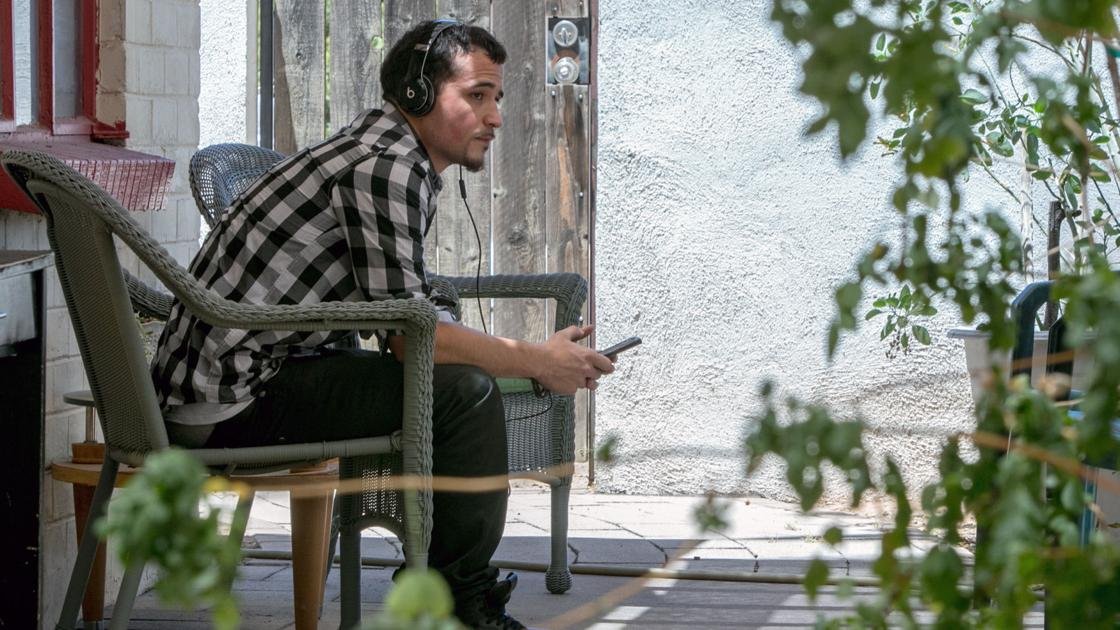Business
Medicaid Slashes Threaten Tucson’s Vital Drug and Mental Health Services

After three felony convictions and years of drug use, Tucson resident Jacob Kirk faced a mandatory prison sentence. Until he got another chance.
Kirk, now 25, spent three months in a residential drug-treatment program, signed up for mental-health care, and received medication for anxiety and depression for the first time. He’s been sober for 27 months, is assistant manager of the transitional housing complex where he lives, and has a newfound passion for writing and playing music under the name J-Universe.
This transformation was made possible through a Pima County Superior Court prison-diversion program for nonviolent offenders—an initiative that may now be threatened by congressional efforts to undo the Affordable Care Act (ACA).
Debates over repealing and replacing Obamacare often focus on health-insurance exchanges and premium costs, but advocates argue that proposed Medicaid cuts could devastate those with substance-use disorders and mental-health issues in Arizona. A state analysis released Friday indicates that Arizona’s Medicaid program could lose $7.1 billion through 2026.
Pima County Public Defender Joel Feinman voiced concerns regarding these possible cuts. “The criminal-justice system is what happens when we don’t have well-funded health-care and education systems,” Feinman said. Tucson Police Chief Chris Magnus added that the ACA has successfully insured people with serious psychological health issues.
Medicaid is a crucial source of behavioral health funding. The Arizona Health Care Cost Containment System (AHCCCS) covers one in every four residents in Pima County, totaling nearly 300,000 people. Across Arizona, it covers 1.9 million people, and more than 70 million nationwide. The American Health Care Act (AHCA) includes $834 billion in Medicaid cuts over a decade, with deeper cuts in the Senate’s health bill under discussion. A Congressional Budget Office report on the Senate bill is expected this week.
Andy Slavitt, former acting administrator for the U.S. Centers for Medicaid and Medicare Services, emphasized, “The premise of repealing and replacing the ACA is a sideshow. This is entitlement reform.”
Republican-proposed Medicaid cuts would reduce federal funding, hindering Arizona’s ability to enroll childless adults in AHCCCS and maintain the Medicaid expansion population. Currently, 425,000 people fall under these groups, including 114,000 who use behavioral-health services.
Chief Magnus warned that reducing Medicaid would mean more untreated mental illness and increased police calls for service. Feinman noted that fiscal conservatives should be as concerned about the cuts as social liberals because they lead to higher criminal-justice system costs.
Kirk benefited from AHCCCS and the Drug Treatment Alternative to Prison (DTAP) program after his third felony conviction. DTAP, coordinated by the Pima County Attorney’s Office, requires a three-year commitment to treatment funded by AHCCCS. Kate Lawson, who directs DTAP, believes that without AHCCCS, they couldn’t assist more than a couple dozen people annually.
The Tucson Police Department’s Mental Health Support Team, which includes officers like Todd Schladweiler, helps reconnect individuals with services. However, reducing AHCCCS enrollment would complicate their efforts. Paula Pererra from the Pima County Attorney’s Office highlighted that untreated mental-health issues result in higher criminal-justice costs and worsening quality of life.
Arizona state legislator Heather Carter and Governor Doug Ducey have raised concerns about the federal funding cuts. Ducey, in a letter to Senator John McCain, identified concerns with the AHCA that could jeopardize Arizona’s Medicaid population.
Kirk, unaware of how federal health reforms could impact his AHCCCS coverage, hopes to continue receiving his medication. “I don’t know what would happen if I couldn’t get my meds,” he said. “I don’t really want to find out.”
For further information, contact health reporter Stephanie Innes at 573-4134 or sinnes@tucson.com. Follow her on Twitter: @stephanieinnes.


















